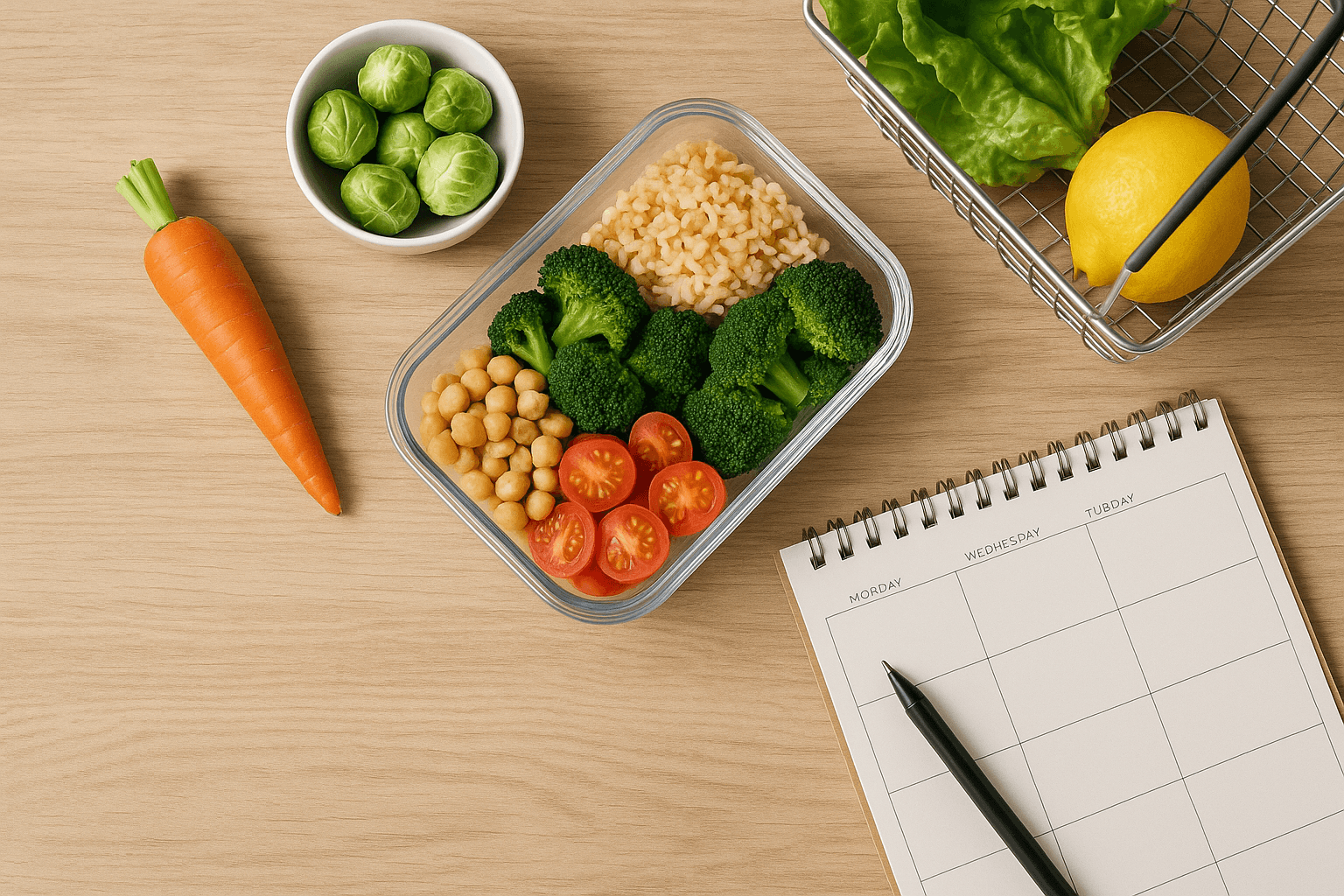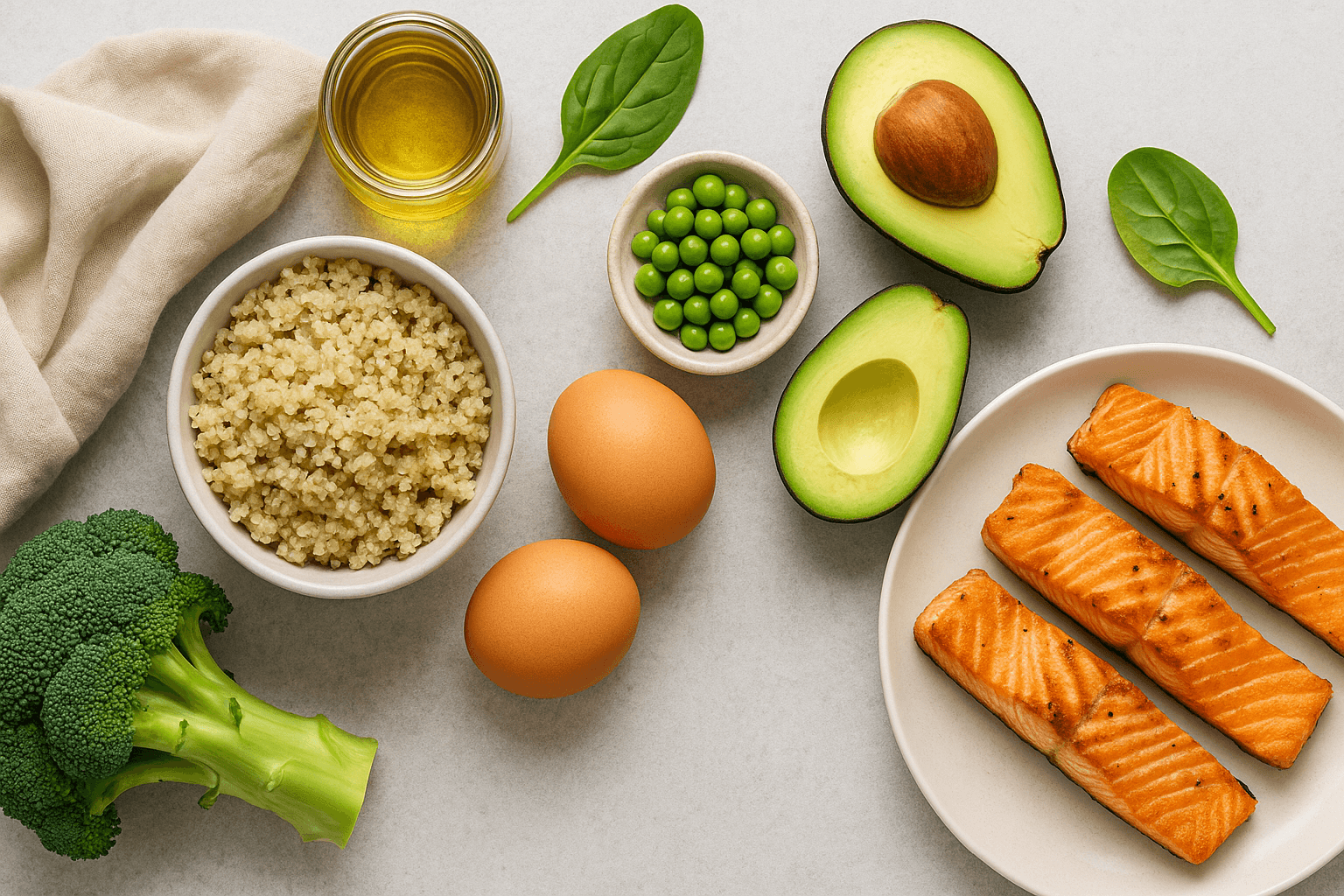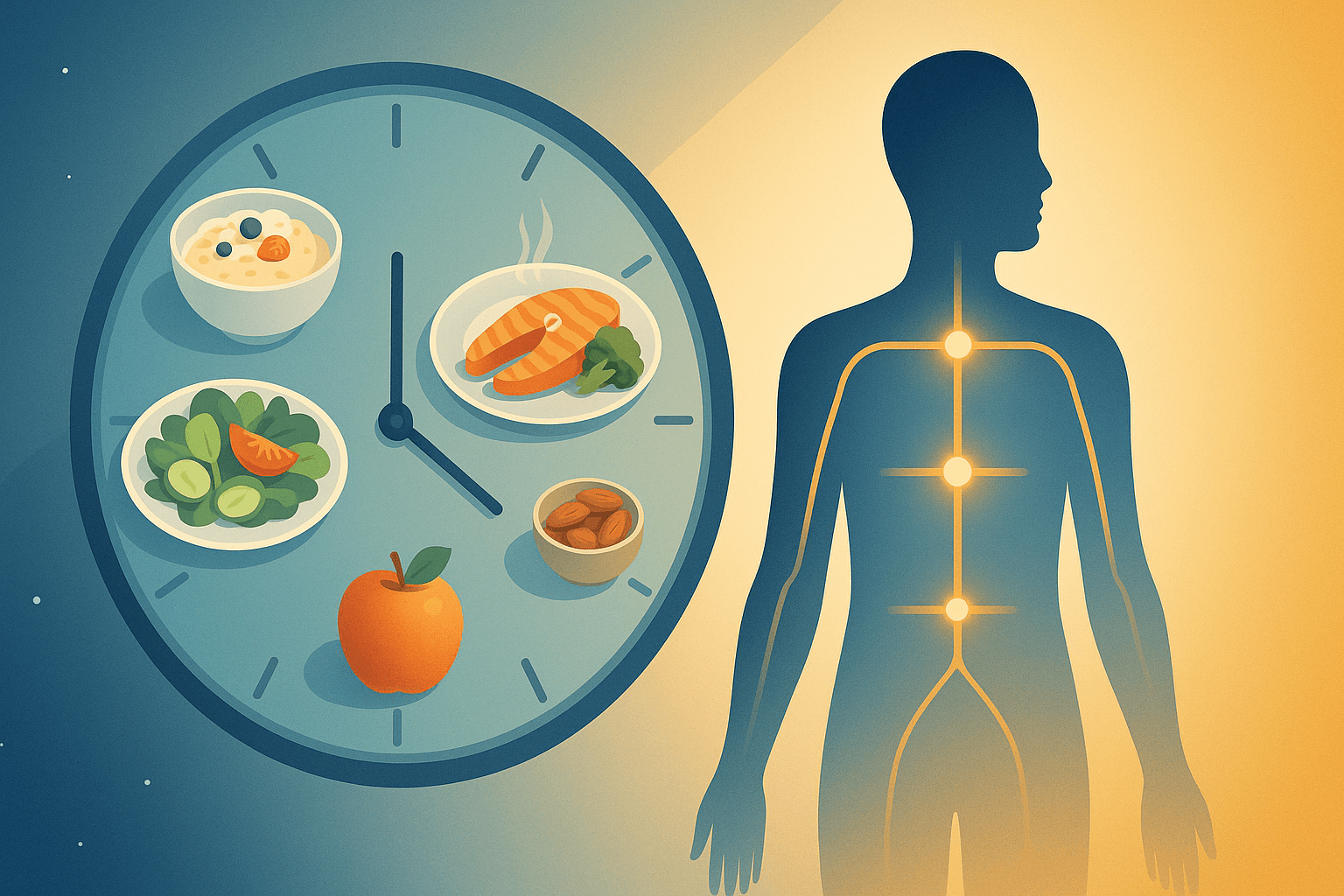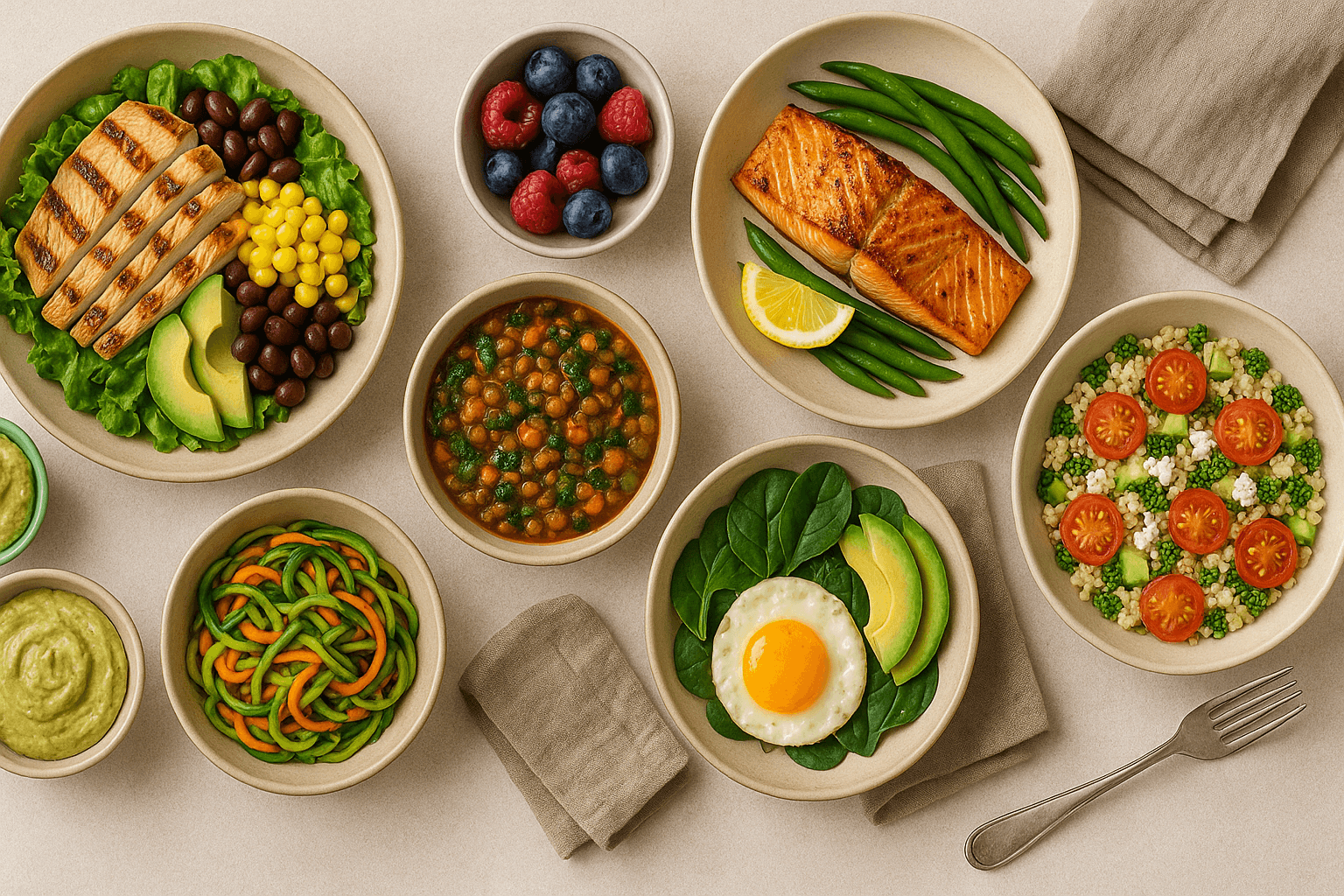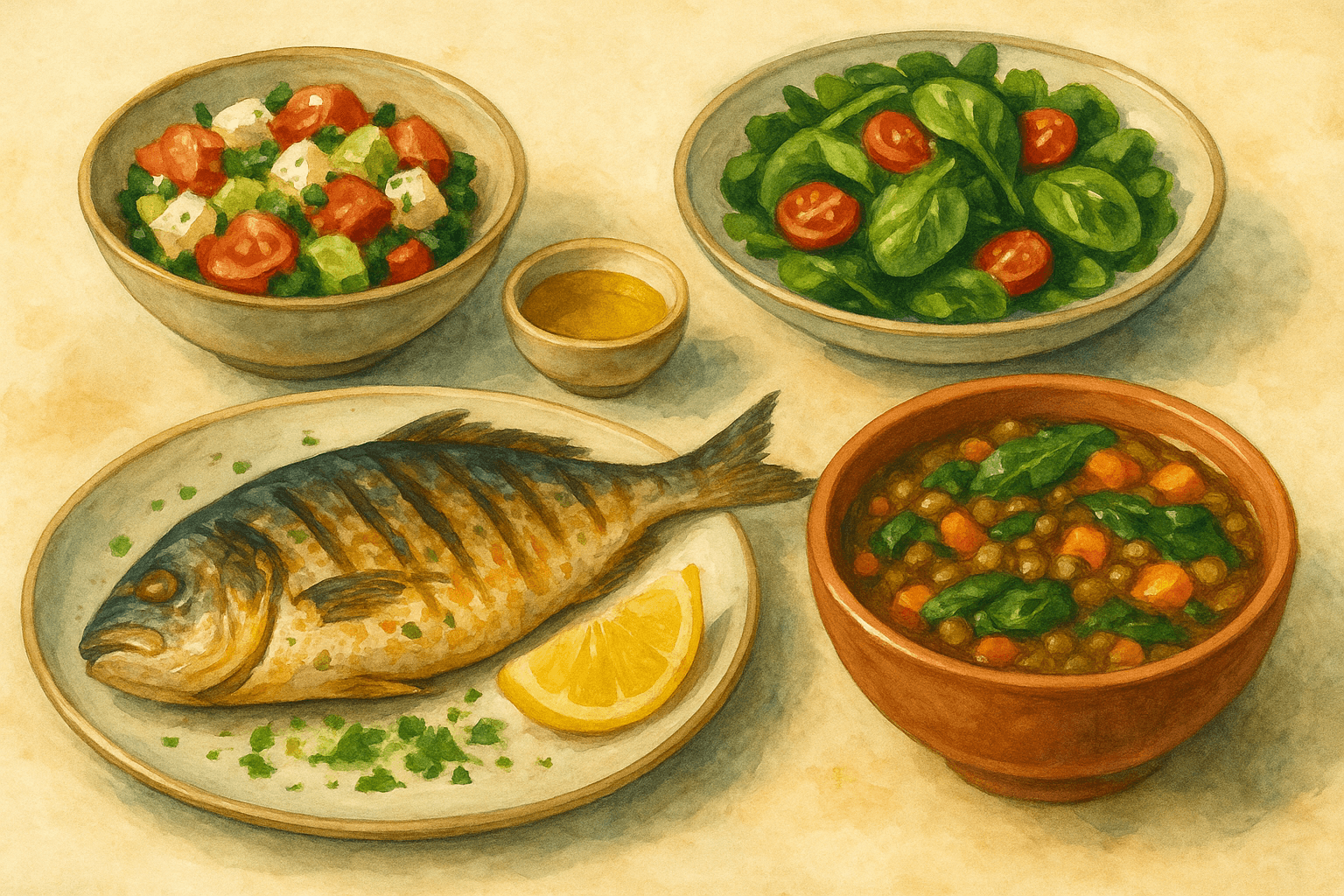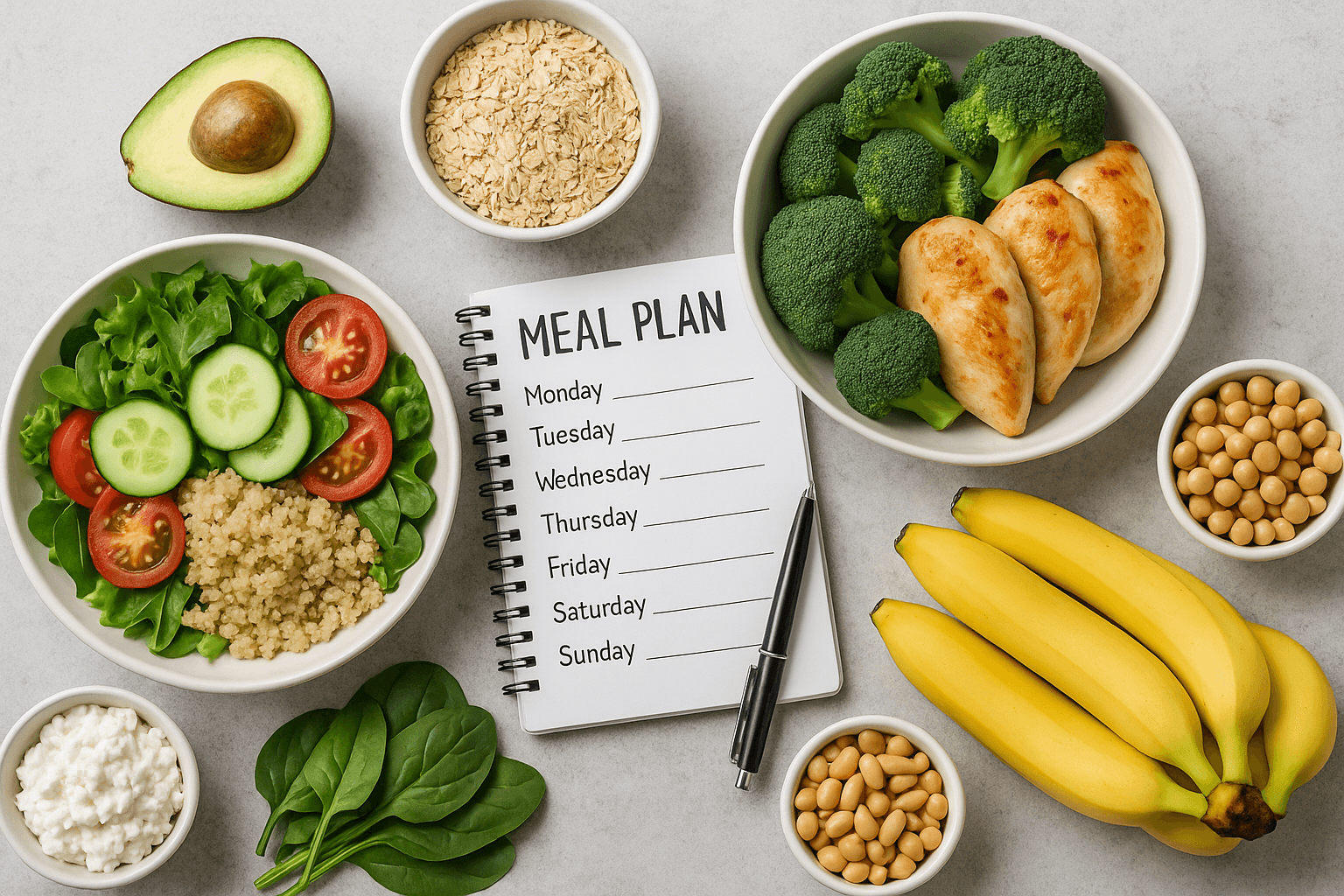Mastering Meal Plans: From One Day to One Month of Healthy, Delicious Eating
Published on August 11, 2025
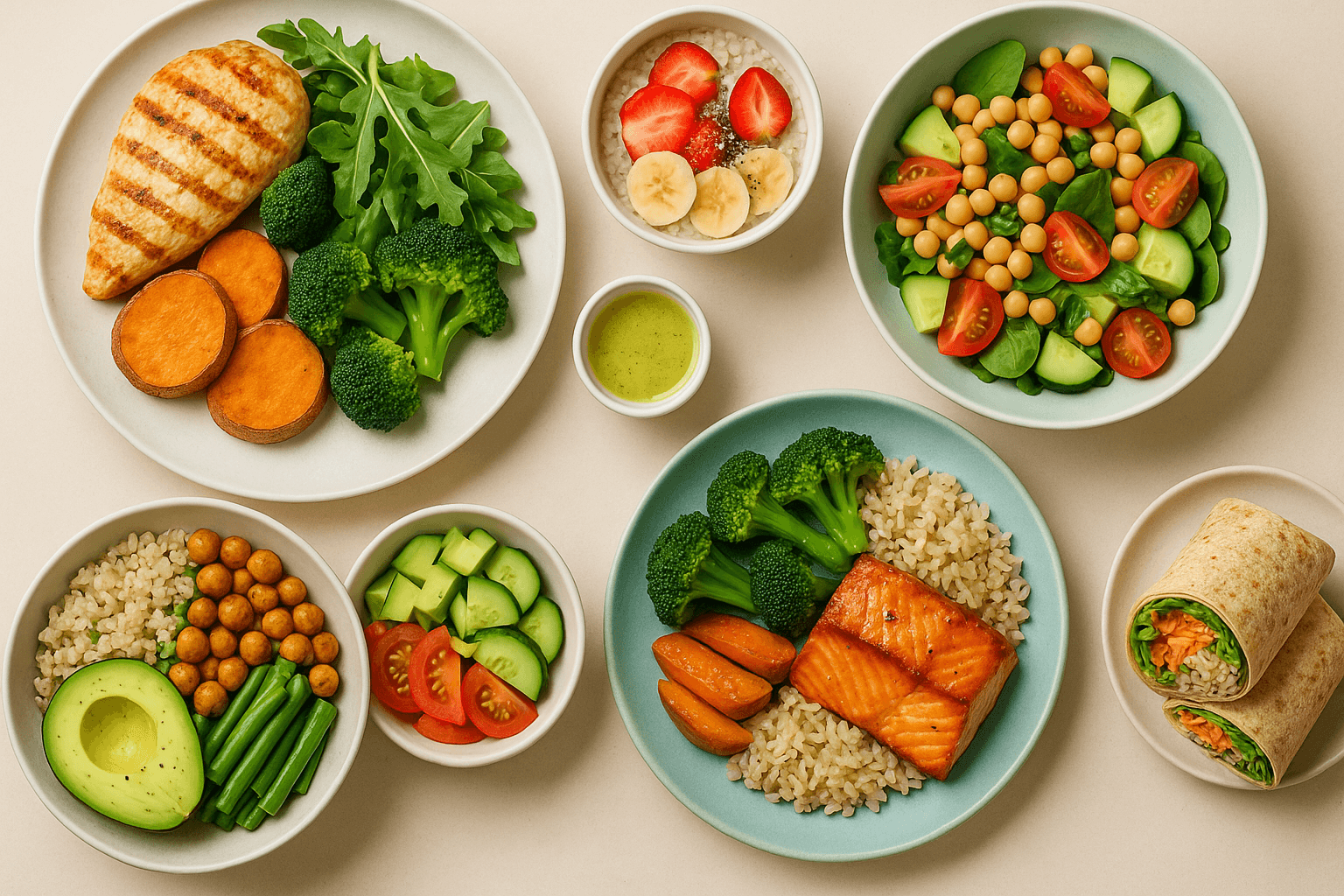
Meal planning is not just writing on a paper some recipes or what to cook tomorrow. This is an intentional way of eating that has the power to reframe your entire life — allowing you to effortlessly keep up your good-health game, save money and reduce waste like never before, through the advantages of time and mental space you didn't even know were being lost. Meal planning isn´t just for those super organized people, fitness fanatics or even professional chefs. It is a skill and practice that can be tailored to work for anyone no matter your cooking acumen, family size or schedule.
Meal planning isn't just filling in what you will eat, it is the structure to your days and weeks. Because nothing sounds better than not having to decide at 6p, ugh what to make for dinner? You know the menu when you are tired and hungry. You shopped for the ingredients You did as much meal prep as possible — and now you have no decision-making pressure. This not only saves you time and money — it also frees up brainpower to focus on the rest of your life, so that healthy eating feels less like a burden and more like an automative part of your routine.
Meal planning is more advantageous than being convenient. Consistent meal planning has been the thing that has turned around my clients eating habits over the years. Those who ate out a lot, or nuked frozen meals more than they would have liked to, cooked more fresh ingredients and introduced themselves to some of the foods their body has been begging for while falling in love with every bite. It served as a safety net to keep them on track even when stressed and /or busy, so they would not go back into their unhealthy defaults.
Why Meal Plans Work So Well
Meal planning has time and head-space-wise. Each of your decisions takes a toll on your mental resources, such as what to wear in the morning, when to answer an email or how am I going to solve this problem with my co-worker today. By the time you are deciding what to cook, you are likely too mentally exhausted and may resort to the easiest or something familiar- maybe not your healthiest choice. A plan removes the decision fatigue. You have already done the thinking for yourself ahead of time, so when meal times comes around you can just follow through.
Authors this way earn their tentacles plus at an exact time save food bucks which might have depart to squander. Planning means buying with intention. Everything you put in the cart is scheduled for a specific meal, so the likelihood of being left with unused veggies or worse— forgotten items that go bad before you can use them — goes way down. It also means you can be smart about your grocery shopping — stocking up on whatever is in-season and priced cheap, and cooking in bulk when it makes sense. The saving over time can be substantial, plus the satisfaction that you are actually wasting less food.
It supports your health goals. Meal planning, whether you are trying to lose weight, build muscle, keep blood sugar stable or simply optimize your daily intake of nutrients helps align your food choices with that goal. If you have no plan in place, it is all too easy to resort to calorie-dense but nutrient-poor snacks and side-stepping your veggies. When you have a plan, your meals are purposeful and designed to give you the vital nutrients in order for you to be able to perform at optimal levels etc.
It encourages variety and creativity. Ironically, the more you plan means the less likely it is for food variety and interestment. Because, when you do not plan you end up eating the same three or four “default” dishes over and over. You might just take a recipe off your Pinterest board or use it as inspiration, but you'll probably branch out and try some new dishes, mess around with different kinds of cuisines and make the most out of what's in season if you've sat down to map things out for the week or month. Switching it up will not only make meals more interesting, but you also end up getting a broader spectrum of nutrients.
It reduces stress around food. Fear not, for it may seem like the most trivial of concerns to some but I suspect many will have experienced that real low-level anxiety when you have to make much more food-related decisions. That Stress Vanishes when You have a Plan You know what to expect, you are ready for it, and you can just savour your meals instead of trying to meal prep!
The Complete Guide to Making a Meal Plan in 2020
If you are a beginner, then you may keep it simple by only planning a few days ahead, but if you are experienced, why not plan the whole week and even the upcoming month? Where a longer scale would make your shopping and cooking more streamlined, it may just as likely force you to be TOO structured when life gets in the way.
Step 2: Select Your Meal Categories
This is applicable to not just dinners but breakfast, lunch and even snacks as well. Consider your schedule, you may be very busy in the mornings and need to plan for grab-and-go but have more time on weekends when you can do bigger dishes. The balance of some quick, simple recipes and other more labor-intensive ones.
Step 3: Balance Every Plate
As a general rule, aim to have your plate half full of non-starchy vegetables, one quarter with lean protein and the final quarter with whole grains or starchy vegetables. Add a teaspoon of healthy fat for flavor and nutrient absorption. This prevents meals from being boring or unhealthy.
Step 4: Sharpen Your Shopping List
From the recipes you decided to make, write down each ingredient. List all your items by section in the store: produce, protein, quality dairy and pantry staples—so that it will save you a lot of time. This helps you to anticipate when things may be cheaper in bulk or how you can replenish the ingredients that you already have laying around at home.
Step 5: Prep in Advance
Just spending 20–30 minutes of prep work can do wonders throughout your week. Whether it's washing and chopping vegetables, cooking grains or marinating proteins; when it is time to simply heat your meal much of the groundwork has already been laid.
Sample 1-Day Meal Plan
Breakfast: Chia Seed Almond Butter Overnight Oats made with unsweetened almond milk, fresh berries, and a little honey. Make this high-fibre breakfast one day before hand, so perfect for those mornings with not enough time.
Mid-Morning Snack: Slices of apple, cleaned with peanut butter The fiber and healthy fats also give your body energy that will last a while, keeping you fuller longer thus also holding you over till lunch.
Lunch: Quinoa salad with chickpeas, cucumber, tomato, feta cheese and lemon-olive oil dressing. It is an excellent high protein, high fiber meal that literally can be whipped up in five minutes or batch-prepped.
Snack: Greek yogurt with walnuts. The yogurt gives you protein and probiotics, the walnuts offer up omega-3s and a practically endless supply of things to crunch.
Dinner: Baked salmon with roasted sweet potatoes and steamed broccoli A dinner with protein, complex carbs, and micronutrients.
Sample 7-Day Meal Plan Highlights
Week 1: Lentil Soup and Whole Grain Bread; Spinach Salad onboard Grilled Chicken, Avocado and Sunflower Seeds.
Turkey chili with beans and bell peppers; avocado toast with poached egg. (Friday)
Thursday Veggie stir-fry with tofu Smoothie — spinach, banana (frozen), ground flaxseeds
Day 4- Spaghetti: Whole wheat spaghetti with tomato-basil sauce, served with Brussels sprouts.
Black bean tacos w/ salsa and guacamole, + banana oat pancakes w/ berries
Day 6: Baked cod, quinoa, green beans Hummus with vegetable sticks
Lunch (Day 7): Home made veggie pizza with a side salad Dinner- Yogurt Parfait with Granola and Berries
Monthly Meal Planning Tips
Theme Nights — Have a theme for each day…Meatless Monday, Taco Tuesday, Stir-Fry Friday, Soup Saturday. This will make it easier and also ensure variation.
Batch Cooking: Fix two recipes at a time and store in meal-size portions. The Best Dishes to FreezeSoup, casseroles, and grains freeze beautifully.
Core Concept: Plan your meals around seasonal produce for superior flavor, lower-cost, and naturally diversify your diet year round
Allow for Flexibility: Plan 80% of your meals and leave 20% free or open to eat elsewhere that you might want.
Tools and Resources
Meal Planning Apps: Apps like Eatr, Mealime, and Paprika have the features to save recipes, take what you need for a recipe from your pantry into a grocery list and suggest meals that based on how you cook.
Templates and Guides: Keep a whiteboard, an example of a printable planner or home workout template, magnetic chart on the fridge to make your plan clear and accessible.
Periodic Rotation: Keep a list of 15–20 recipes you have in your back pocket, and then rotate them throughout the season with seasonal ones to keep things fresh.
Making It Work in Real Life
Consider your meal plan as a resource, not a holy writ. Things happen, meetings go long, friends call to go out or maybe you are just not feeling what you laid out. That’s okay. Eat both, freeze leftovers or halve ingredients. The point is to make it easy for you, not provide added feelings of stress.
You know by now when you need each thing most, and over time you will find it easier to foresee that need and adapt accordingly. Soon you will plan your week by considering: which fruits and vegetables are in season, what recipes you can try, how busy your life is. Before you know it, meal planning will be so much a part of your life it never feels like “planning” again.
The long term benefits are incontestable: improved, more systematic healthy eating habits, less stress, less waste and usually significant cost savings also. It is a rare habit that delivers benefit in several, if not all areas of life at once, and the more you do it—the easier —and the more fun— it becomes.
If you really want to see meal planning magic happen, start your month with a thorough list of favorite recipes and new dishes you would like to try. Pack snacks, allow for flexibility and prep when you can. I hear you, all I can say is that when you start eating healthier on a regular basis, the natural sweetness of veggies will be enough. And really. You'll just feel like you're gliding through your day and before you know it, fabulous food will magically appear at meal times with minimum to no effort.



